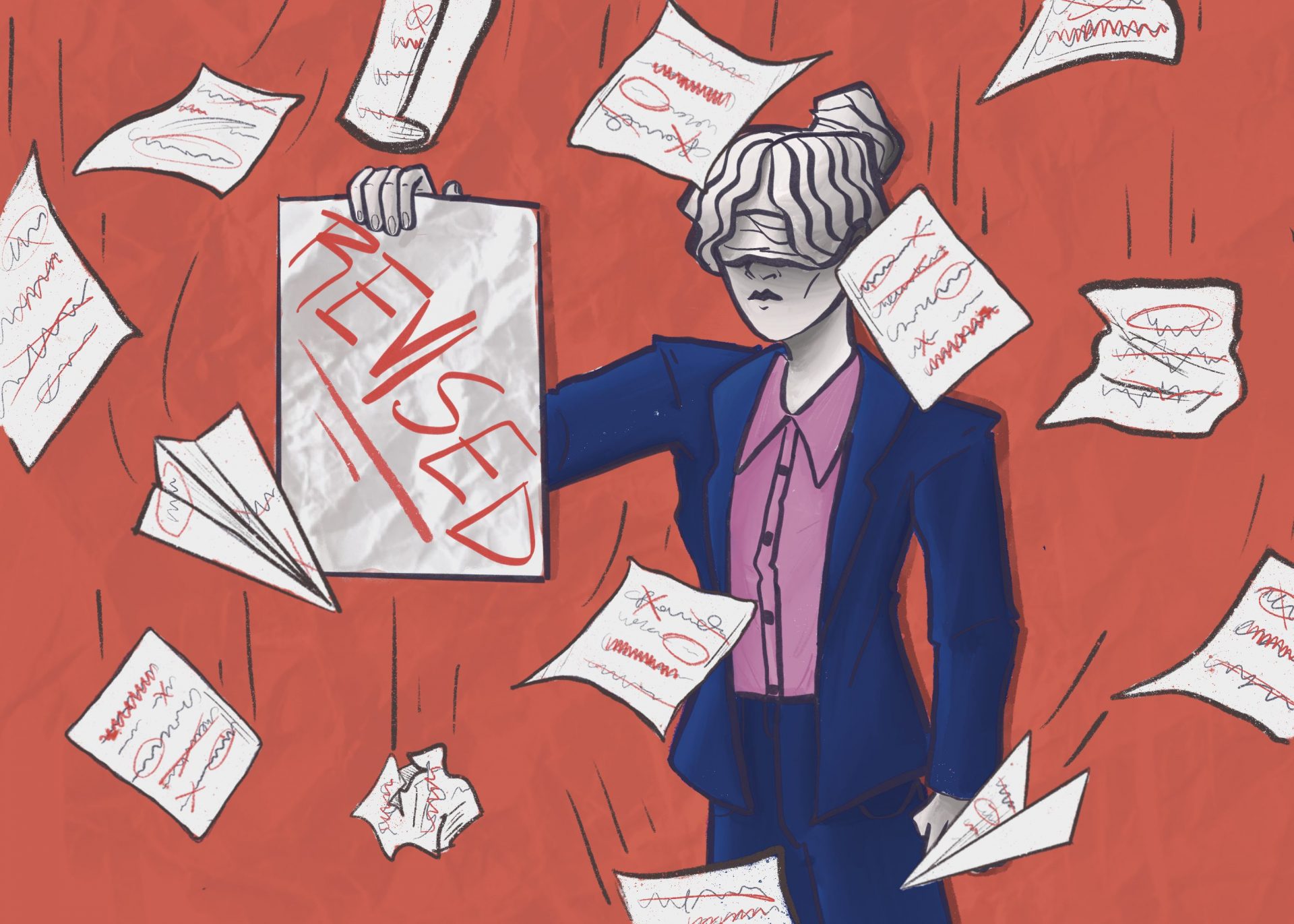For over a year, Georgetown has been revising its rules governing student conduct.
Starting this academic year, the university is implementing the revised version of the Code of Student Conduct—the rules students must follow while they’re enrolled—and the Community Standards process—how the university responds to nonacademic misconduct. The changes come as new director of student conduct Dr. Kernysha Rowe transitions into her role.
Major changes include adding optional educational conferences as a decision mechanism and changing the standard of proof—how much evidence is needed to charge students—for on-campus violations. Restorative justice practices, such as “restorative circles or conferences,” will be introduced for sanctioning, although their use will be on a case-by-case basis. Harassment or discrimination involving a protected identity will no longer be handled by the Office of Student Conduct (OSC); instead, those cases will be referred to the Office of Institutional Diversity, Equity, and Affirmative Action.
Educational Conferences
Before the revisions, when a student was written up for a potential violation, the case was handled through administrative action or by a hearing board.
Administrative action was used for lower-level offenses and would involve an individual conference between the student and a conduct officer who would determine if the student was responsible for a violation and, if so, assign sanctions. A hearing board, usually a panel consisting of a dean, two students, and two faculty members who decide the outcome, was typically reserved for cases where the sanction could include expulsion or disciplinary suspension, or when OSC thought a board might be more appropriate.
The revised code, however, eliminated the use of hearing boards and added educational conferences as an option. Educational conferences are meetings between the student facing conduct charges and a “Community Educator” who is a staff member in either Residential Education or OSC.
In educational conferences, the student will be “informed of their rights and responsibilities, guided through the community standards process, and encouraged to critically reflect on how their actions have impacted themselves and others,” a university spokesperson wrote to the Voice.
Matthew Wong (SFS ’25), one of the directors in the Student Advocacy Office (SAO), which provides free and confidential advice to students on their conduct cases, explained that the conferences are intended for cases where it’s clear a student is responsible for the violation, and they would benefit from the learning experience.
“The goal is for the student and the Community Educator to come together and create a consensus on what they believe the sanction should be,” Wong said.
If a sanction has been decided in the educational conference, students do not have the ability to appeal it, because the agreement was reached with input from the student and Community Educator.
If they cannot come to an agreement or if the student bypasses the education conference, an investigation will follow and an administrative conference—similar to the previous administrative action—will decide the sanction. Those conferences are led by a conduct staff member and can be appealed to an appeals panel.
Both Wong and Sydney Blackston (SON ’25), the other director of SAO, stressed that these educational conferences are not required, and students can choose to opt out of them if they wish to resolve their case through a traditional administrative conference instead.
Blackston and Wong say that SAO is still unclear on how these conferences will change student outcomes, and haven’t decided whether they will recommend them to students seeking advice.
“We just worry that if a student doesn’t know that they can come to SAO or doesn’t get the right information that they would go to this educational conference and agree to whatever they’re being charged with,” Blackston said. “Now, they have lost their chance to appeal.”
Standard of Proof
Historically, for a student to receive an off-campus conduct charge, OSC required proof that the violation was “more likely than not,” while on-campus needed “clear and convincing” evidence. According to the 2023-24 Student Code of Conduct, these designations meant that on-campus violations required “more substantial information” than off-campus violations to result in sanctions.
The directors of SAO said that the standard of proof for individual cases varied depending on the incident. However, Blackston added that the two can be understood more easily using the case of a house party. According to Blackston, for an on-campus party infraction under the previous code, a student typically needed to be named in the incident report, created by an RA or GUPD, to be charged.
By contrast, with infractions involving an off-campus party, often, every resident of the home gets written up, even if they’re not explicitly named in the incident report, unless they have proof that they were not at the house during the party, according to Blackston. SAO typically tells students that they need evidence like a restaurant receipt or movie ticket from that time frame to prove they were not at the residence.
“Because with off-campus incidents, it’s your residence, so they’re going to go in the side of, ‘Yeah, this party happened, we can see it in the incident report, we’re going to go in the direction that you were participating in it,’” Blackston said.
Under the revised code, both on- and off-campus incidents will require a “preponderance of evidence,” which aligns more closely with the “more likely than not” standard, according to Blackston. While having one standard is common among Georgetown’s peer institutions, Blackston said, this new policy does theoretically lower the proof required for students to be charged with on-campus violations.
The university made the change so the standard of proof applies equally to all students, according to a university spokesperson.
“This decision promotes equity in how we respond to addressing behaviors on- and off-campus for students, moving us toward a more educational community standards process and a less punitive approach when determining responsibility,” the spokesperson wrote in an email to the Voice.
SAO hasn’t worked on enough conduct violations this semester to know exactly how this revised policy will affect cases.
“It will take time to see how that actually plays out on campus and how that changes enforcement and write-ups,” Blackston said.






